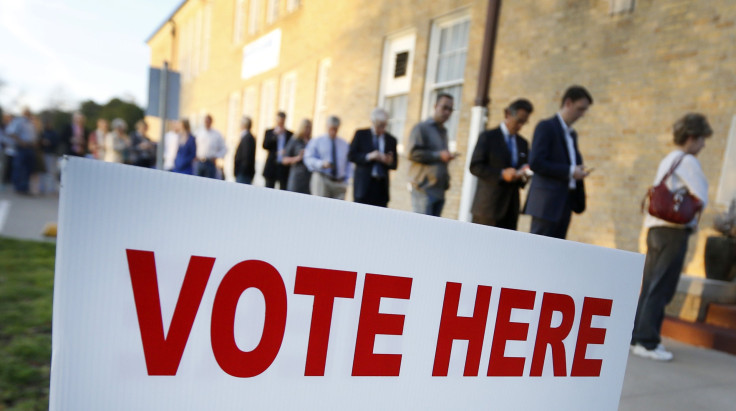What Was Trump's Voter Fraud Commission And Why It Was Disbanded

With his first executive order for 2018, President Donald Trump dissolved Wednesday the voter fraud commission. The White house issued a statement on Trump’s abrupt dismissal of the commission, formally known as the Presidential Advisory Commission on Election Integrity, which he had set up in June.
The statement issued by the White House read, “Many states have refused to provide the Presidential Advisory Commission on Election Integrity with basic information relevant to its inquiry. Rather than engage in endless legal battles at taxpayer expense, today President Donald J. Trump signed an executive order to dissolve the Commission.”
The president also directed the Department of Homeland Security “to review its findings and determine next courses of action.”
The dissolution of the commission was music to the ears of Democrats, who had been clamoring for the president to disband it even before he had actually put it together.
The Administration’s “commission on election integrity” was always a scheme to suppress certain groups of Americans from exercising their right to vote. Good riddance https://t.co/y02pnX49Tf
— Senator Bob Casey (@SenBobCasey) January 4, 2018
Fraudulent voter fraud commission is dissolved. The ugly death it deserved.
— Rep. Gerry Connolly (@GerryConnolly) January 3, 2018
The Democrats strongly argued there was no corroborative evidence to ever suggest voter fraud in the country. Even some Republicans had a few concerns on the issue. Secretary of State for Mississippi, Delbert Hosemann, a Republican, asked the commission to “fall in the gulf” in response to its July request for voter information.
In June, the White House said in a statement it suspected several voters in the country were unregistered, resulting in voter fraud. However, there was no evidence to support the claim, which was made when Steve Bannon, Trump's chief strategist at the time, said he was able to cast his vote in New York City despite being a registered voter in Florida. There was no evidence to prove he voted in both the staes, the Guardian reported.
So why exactly was the commission set up?
Its origing tracks back to the time when Trump suspected his loss on popular votes in the presidential election had more to do with voter fraud than his unpopularity. Somehow, the latter notion was completely inconceivable to the president, and so, a commission was formed to survey the alleged fraud.
The commission was headed by Vice President Mike Pence and Kansas Secretary of State Kris Kobach. In June, the commission sent out requests to states to obtain personal information on people’s residences, contact numbers, dates of birth and social security numbers. A total of 44 states refused Trump’s voter data requests on grounds that disclosing the data would constitute an invasion of privacy of its citizens.
Even ordinary people weren’t exactly thrilled at the prospect of their private information being made available to the federal government, since it could compromise their personal security. Several people emailed the White House expressing concern. Some of those fears came true when the White House decided to release those emails without redacting any of the personal information they contained.
Democrats condemned Trump's administration for egregious oversight and severely criticized the commission, raising questions on the administration’s request to obtain information of citizens. Sens. Sherrod Brown (D-Ohio), Dianne Feinstein (D-California), and Ron Wyden (D-Oregon) wrote a letter to the White House demanding answers to why emails criticizing the fraud commission were made public.
“The incident warrants answers by the administration” the letter read.
The apprehension to divulge information wasn’t merely based on concerns on privacy. Several critics suspected the commission would enable voter suppression, by enacting new measures that will make it difficult to vote.
In a report published by the American Civil Liberties Union, voting restrictions “disproportionately affect the elderly, low-income voters, young people, people with disabilities and communities of color.”
© Copyright IBTimes 2024. All rights reserved.





















